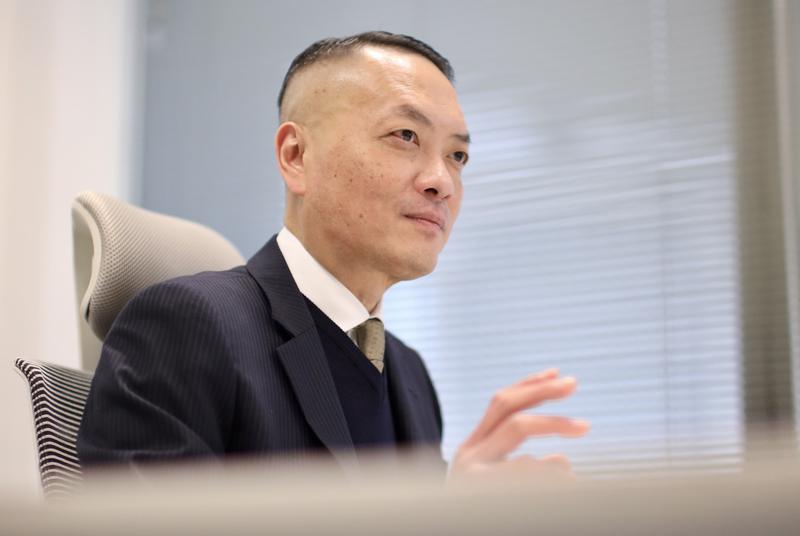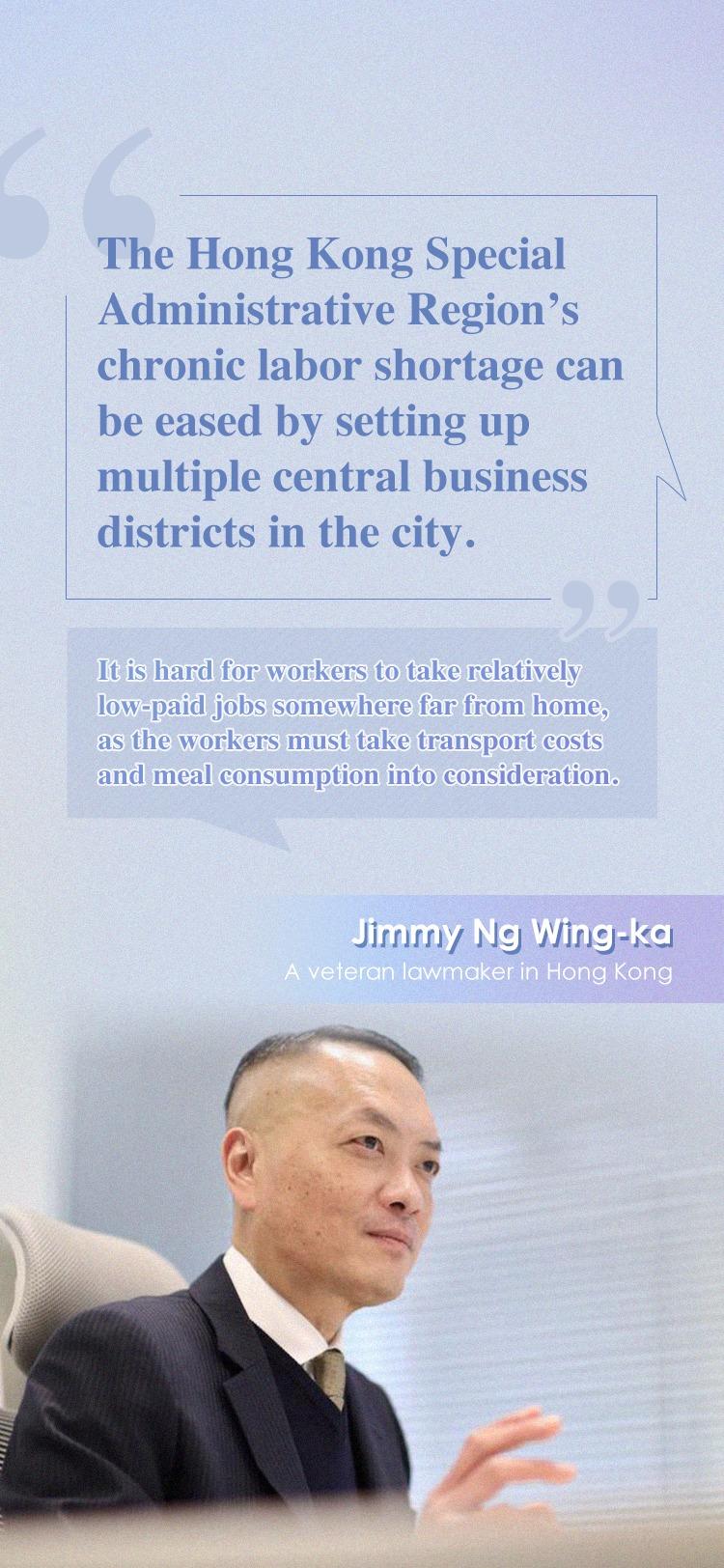 Lawmaker Jimmy Ng Wing-ka, who represents the industrial sector, shares his insights with China Daily during an interview at the LegCo Complex on Jan 18, 2022. (EDMOND TANG / CHINA DAILY)
Lawmaker Jimmy Ng Wing-ka, who represents the industrial sector, shares his insights with China Daily during an interview at the LegCo Complex on Jan 18, 2022. (EDMOND TANG / CHINA DAILY)
The Hong Kong Special Administrative Region’s chronic labor shortage can be eased by setting up multiple central business districts in the city, said Jimmy Ng Wing-ka, a veteran lawmaker who represents the industrial (second) functional constituency at the Legislative Council.
It is hard for workers to take relatively low-paid jobs somewhere far from home, as the workers must take transport costs and meal consumption into consideration, Ng said during an interview with China Daily,
It is hard for workers to take relatively low-paid jobs somewhere far from home, as the workers must take transport costs and meal consumption into consideration, veteran lawmaker Jimmy Ng said during an interview with China Daily
"It costs around HK$2,000 per month for a blue-collar worker who lives in Tin Shui Wai on transportation to Central. The worker may not be able to afford the job with monthly salaries around HK$15,000.”
The unbalanced regional labor distribution makes the city’s labor shortage woes even worse. Ng said it is necessary to set up more central business districts.
ALSO READ: HK jobless rate eases to 3.9%
The city has long been faced with human resources’ shortages, especially in the manufacturing industry. The distribution of employment in the industry for April to September last year stood at 2.2 percent, in stark contrast to the over 88 percent distribution of employment in service industries.
The overall labor force participation rate over the past three decades till 2021 declined by around 6 percent to 58.8 percent, according to a government survey.
The labor market in Hong Kong faces two problems, according to Ng; blue-collar workers, despite urgent demand for them, are not welcomed by the young generation with its higher education diplomas; plus some young people are spoiled by parents and seen as too “indoors-based” and not willing to work.

Chief executive Carrie Lam Cheng Yuet-ngor said in her 2021 Policy Address that the Northern Metropolis development strategy program will create 165,000 to 186,000 homes near the northern New Territories’ border with the Chinese mainland. In Ng’s opinion, the program is not only about housing demand, various needs of people from all walks of life should also be considered.
ALSO READ: Finance chief expects HK's jobless rate to keep dropping
Ng, who is also an executive general committee member of the Chinese Manufacturers’ Association of Hong Kong, suggested the government include industrial parks in the Northern Metropolis development. The policy aims to promote industrial development, improve the working and living conditions of blue-collar workers, and help to ease human resources shortages.
Most job opportunities are provided in Central and Wan Chai with high daily flows of people to these areas. Ng said establishing central business districts and government offices in other parts of Hong Kong can also reduce traffic congestion in these two districts.
The Hong Kong government has already decided to move the headquarters of its Immigration Department from Wan Chai to Tseung Kwan O. Construction of the new headquarters is expected to be completed in the first quarter of 2023.
Ng, who was awarded the Bronze Bauhinia Star for his efforts in facilitating exchanges between the government and the industrial sector, has also urged the authorities to establish innovation, technology and industrial bureaus to make strategies for a reindustrialization blueprint.
READ MORE: Experts: Northern Metropolis to be HK's 'Silicon Valley'
In her 2020 Policy Address, Lam announced that Hong Kong will aim to achieve carbon neutrality before 2050. Ng said he will play a bridging role between the government and the industrial sector to help accelerate green and low-carbon transformation.
tianyuanzhang@chinadailyhk.com


